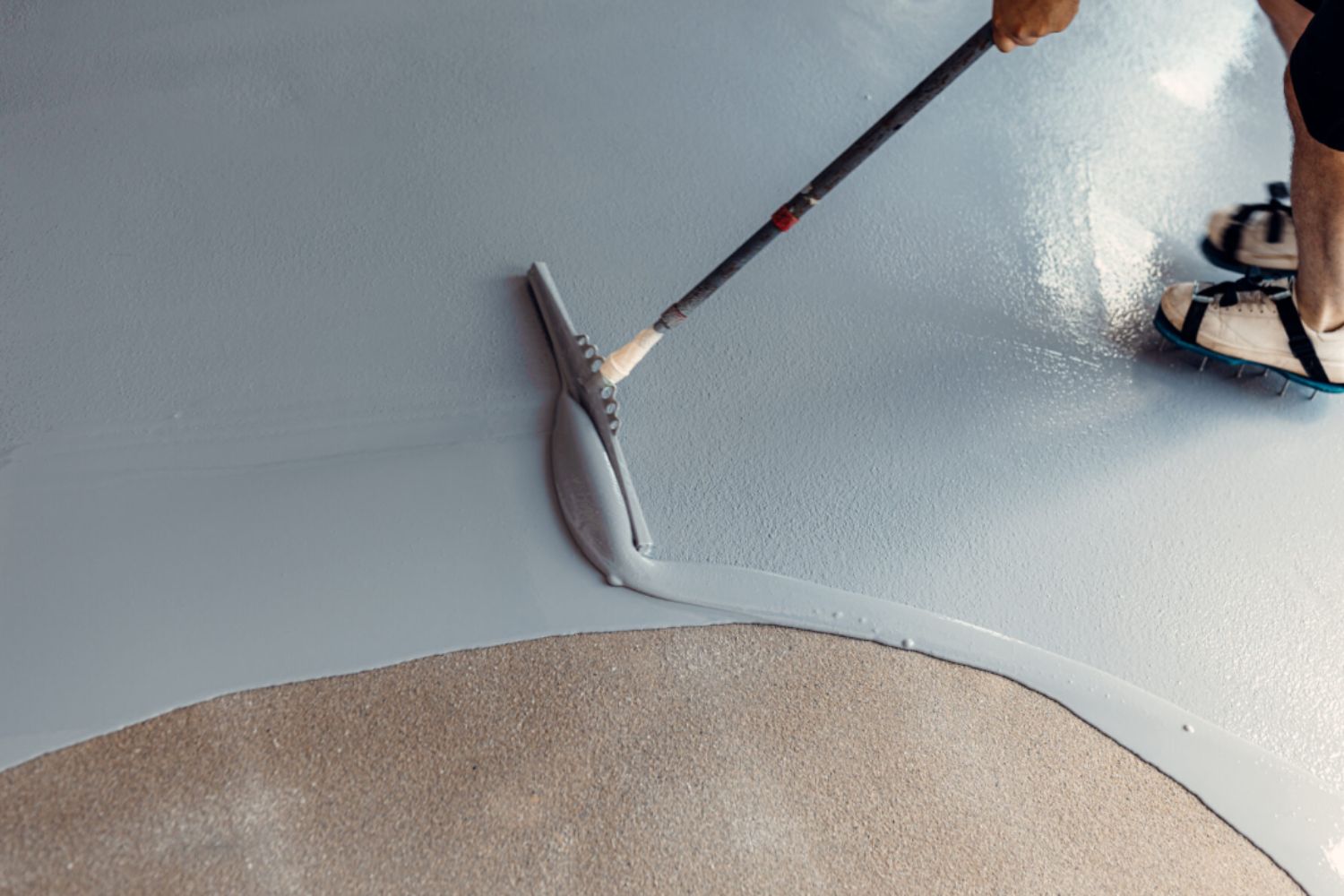
Considering installing epoxy floors in your home or business, but unsure if you should tackle it yourself?
We explore the benefits of epoxy floors, the steps to DIY installation, the tools and materials required, potential risks, and alternatives to consider.
From durability to aesthetics, we cover all you need to make an informed decision. Find out if DIY epoxy floors are the right choice for you!
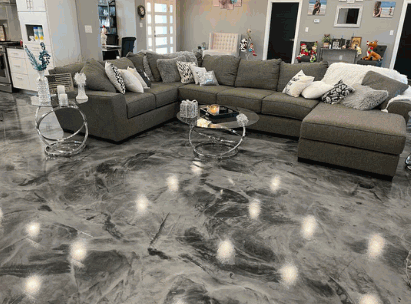
Table of Contents
Epoxy floors are durable and versatile flooring solutions that involve applying a resin coating to a surface, resulting in a smooth and glossy finish.
Epoxy flooring is highly valued for its exceptional durability, making it ideal for high-traffic areas such as industrial facilities, garages, and warehouses. The application process typically involves mixing the epoxy resin with a hardener, creating a chemical reaction that forms a bond with the floor's surface. This bond not only enhances the strength of the flooring but also provides resistance against stains, impacts, and chemicals, ensuring a long-lasting finish.
The benefits of epoxy floors extend beyond durability. These coatings are available in various colours and finishes, allowing for customisation to match any aesthetic preferences. The smooth, seamless surface of epoxy flooring also makes it easy to clean and maintain, reducing the time and effort required for upkeep.
Dig deeper: What Is A Blue Resin Floor
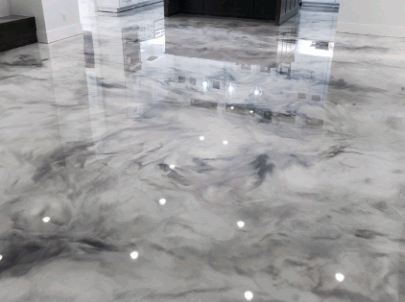
Epoxy floors offer a range of benefits, including exceptional durability, ease of cleaning, resistance to chemicals, and the ability to enhance the aesthetics of any space.
One of the key advantages of epoxy floors is their easy maintenance. Unlike traditional flooring materials that require frequent scrubbing and special cleaning solutions, epoxy coatings can be easily cleaned with just soap and water, making them a practical choice for busy spaces. Their chemical resistance means that they can withstand spills from oils, solvents, and other harsh substances without staining or damaging the floor.
The aesthetic appeal of epoxy floors is unmatched. They come in a variety of colours, finishes, and patterns, allowing for endless design possibilities to suit any decor style. This versatility makes them a popular choice for not only industrial and commercial settings but also residential spaces looking for a modern and sleek flooring solution.
The durability of epoxy floors stems from their ability to form a strong bond with concrete surfaces, creating a resilient coating that can withstand heavy foot traffic and other stresses.
Epoxy floors are known for their exceptional resistance to wear and tear, making them ideal for high-traffic areas like industrial settings, garages, and commercial spaces. The seamless surface created by epoxy coatings also protects the underlying concrete from damage caused by chemicals, moisture, and impact.
Thanks to their durable nature, epoxy floors can last for several years without the need for frequent repairs or replacements, saving both time and money in the long run. Their ability to maintain longevity while retaining their aesthetic appeal makes them a popular choice for many flooring applications.
Epoxy floors are easy to clean due to their seamless application process, which involves mixing and applying epoxy primer to create a smooth and uniform surface.
With epoxy floors, the application of the epoxy primer is crucial, as it acts as a bonding agent that ensures the durability and longevity of the flooring. The mixing process is essential to achieve the right consistency for a flawless finish. Once the epoxy primer is applied, it seamlessly covers imperfections, creating a cohesive surface that is resistant to stains and easy to clean. This seamless application also prevents dirt and grime from seeping into cracks or crevices, making maintenance a breeze.
The chemical resistance of epoxy floors is attributed to their seamless nature, which prevents the formation of cracks or holes that could compromise the integrity of the surface.
This seamless quality not only safeguards against the intrusion of damaging elements but also makes maintenance easier, ensuring a longer lifespan of the flooring.
The epoxy grout used in these floors further enhances their durability, creating a strong barrier that repels various chemicals and prevents them from seeping into the surface.
Epoxy floors offer exceptional aesthetics by providing a smooth and glossy finish achieved through the application of a final coat using tools like a roller, following thorough preparation of the surface.
Applying the final coat of epoxy to the meticulously prepared surface not only enhances the aesthetic appeal of the flooring but also adds a protective layer that ensures durability and longevity. The use of a roller in this process allows for an even and consistent application, resulting in a flawless, seamless finish that transforms the space. Proper preparation, including thorough cleaning and etching of the surface, is crucial to ensure adhesion and a professional-looking outcome. The glossy sheen that the final coat imparts adds a touch of sophistication and elegance to any environment.
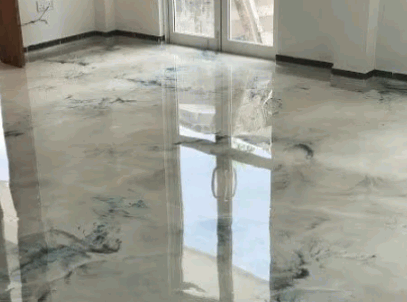
DIY epoxy floors are a viable option for those seeking a cost-effective flooring solution, involving the application of epoxy resin mixed with pigment to achieve desired colour variations.
One of the key advantages of opting for a DIY approach to epoxy flooring is the ability to customise the color to suit your preferences. By using epoxy resin mixed with colorant, you can create a wide range of hues, tones, and effects, turning your floor into a unique work of art.
Whether you prefer bold and vibrant colors or subtle and understated shades, the versatility of epoxy resin allows you to achieve the look you desire. DIY epoxy floors offer the flexibility to experiment with different colorants and application techniques, giving you full control over the final result.
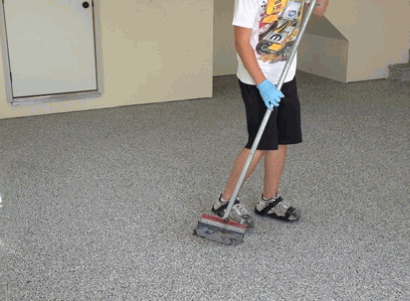
When preparing to apply epoxy flooring, ensure the surface is clean and free of dust or debris. Begin by spreading the resin mixture evenly using a roller or squeegee to guarantee a smooth and uniform coat. Proper ventilation is essential during this step to aid in the curing process. After spreading, carefully pour the epoxy onto the prepared surface, maintaining a steady hand and even distribution. Allow the epoxy to cure undisturbed according to the manufacturer's instructions for optimal results.
To embark on DIY epoxy floors, essential tools, and materials include epoxy flooring kits, spreaders, mixing sticks, and safety equipment to ensure a successful application process.
One might consider having a roller frame and covers for efficient application and leveling of the epoxy. Proper floor preparation tools such as degreasers, etching solutions, and concrete crack fillers are crucial to achieve a clean and smooth surface before beginning the epoxy application.
Having protective gear like gloves, goggles, and respirators is essential for personal safety during the project. Adequate ventilation in the workspace is also recommended to avoid breathing in harmful fumes.
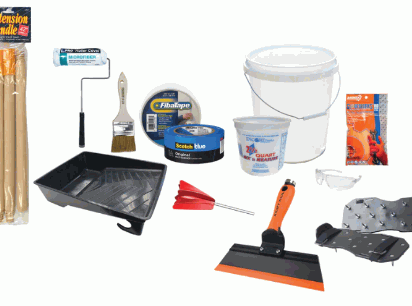
While DIY epoxy floors can be rewarding, potential risks include improper preparation, health hazards, and safety concerns that may arise during the application process.
Improper preparation, such as neglecting a moisture test, inadequately sealing the subfloor, or skipping floor sealant application, can lead to adhesion failures and durability issues in DIY epoxy floors.
One critical aspect of DIY epoxy floor installation involves conducting a thorough moisture test before beginning the project. Failure to do so can result in moisture-related issues later on, causing the epoxy to not properly adhere to the subfloor. Inadequately sealing the subfloor prior to epoxy application can lead to poor adhesion, creating bubbles or patches where the epoxy does not bond correctly.
Skipping the application of the floor sealant can leave the epoxy unprotected and vulnerable to damage from chemicals, wear, and UV rays, significantly reducing its lifespan and overall durability.
Health and safety concerns related to DIY epoxy floors encompass risks associated with using equipment like diamond grinders or shot blasters and not following proper application techniques.
When considering undertaking a DIY epoxy floor project, it is imperative to prioritize safe practices throughout the process. The use of tools such as diamond grinders and shot blasters can pose significant hazards if not handled correctly. Improper use of these tools can lead to injuries, respiratory problems, and exposure to harmful chemicals. Ensuring that proper technique is employed during the application of the epoxy coating is vital to achieving a durable and visually appealing finish while minimising potential risks.
Inexperienced application of epoxy floors may result in issues such as inconsistent metallic effects, unsuitable finishes for designer living spaces, or incorrect adherence to epoxy cure times.
These consequences can lead to a variety of challenges for those attempting DIY projects.
For instance, inconsistent metallic effects may create a disjointed appearance across the floor, disrupting the overall aesthetic. Mismatched finishes can detract from the cohesive look of designer spaces, undermining the intended style and impact. Failing to adhere to epoxy cure times can result in a weak and unstable floor surface, prone to peeling, chipping, or premature wear. It is vital for DIY enthusiasts to carefully follow instructions and seek guidance to achieve the desired results.
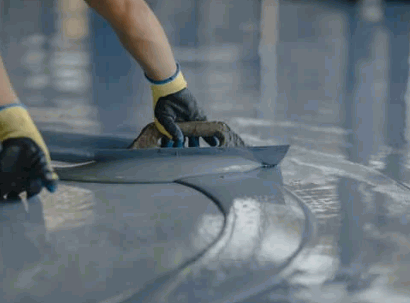
If DIY epoxy floors seem daunting, alternatives include hiring a professional installer, using epoxy floor kits for simplified application, or exploring different flooring options that suit your needs.
Professional installation offers a hassle-free experience, where skilled experts handle the entire process with precision and efficiency. This route guarantees a high-quality finish with minimal effort on your part.
Epoxy floor kits, on the other hand, provide a cost-effective middle ground, allowing you to apply the epoxy yourself following the provided instructions.
For those looking beyond epoxy, alternative flooring selections such as laminate, vinyl, or polished concrete offer diverse aesthetics and functionalities to cater to various preferences.
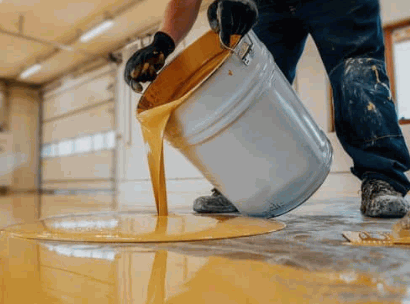
Professional epoxy floor installers in these regions bring a wealth of experience and knowledge to the job, ensuring that the application is done correctly the first time. Their expertise also allows them to offer customised solutions that meet your specific needs, whether it's for a residential garage or a commercial warehouse. The quality outcomes that professionals deliver not only enhance the aesthetics of your space but also provide long-lasting durability, making it a worthwhile investment in the long run.
Epoxy floor kits like GlassCast 3 offer a convenient solution for DIY enthusiasts, providing step-by-step instructions, calculators for accurate measurements, and all necessary materials to simplify the application process.
These kits are designed to make the entire process of creating stunning epoxy floors as hassle-free as possible. With GlassCast 3, users can achieve professional-quality results in the comfort of their own homes. The step-by-step guidance ensures that even beginners can successfully complete their projects with confidence. The inclusion of measurement calculators takes the guesswork out of determining the exact quantities needed for a precise finish. By offering a comprehensive set of materials, including resin and hardener, these kits streamline the entire application process, making them accessible to a wider audience of DIY enthusiasts.
If epoxy floors are not your preference, consider alternative flooring options like garage-specific coatings for enhanced durability or showroom flooring materials for a polished and professional aesthetic.
Garage-specific coatings provide a tough protective layer designed to withstand heavy vehicles and equipment, making them ideal for high-traffic areas like garages. These coatings can resist oil stains and chemicals, ensuring longevity and ease of maintenance.
On the other hand, showroom flooring materials offer a sleek and elegant finish, perfect for retail spaces or areas that require a sophisticated appearance. From premium hardwood to luxurious tiles, showroom flooring elevates the overall ambiance and visual appeal of a space.